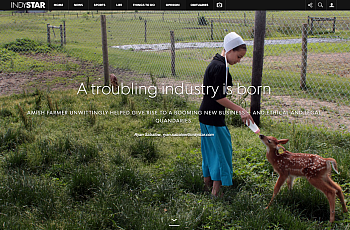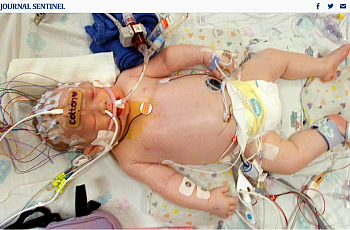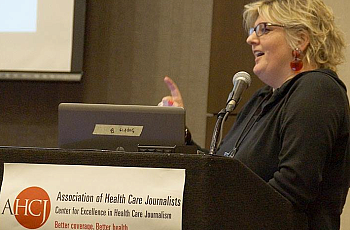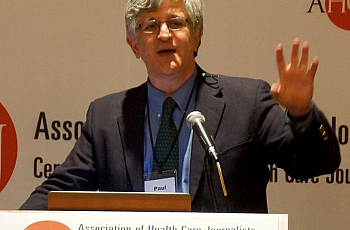
William Heisel
Contributing Editor

Contributing Editor
I have reported on health for most of my career. My work as an investigative reporter at the Los Angeles Times and the Orange County Register exposed problems with the fertility industry, the trade in human body parts and the use of illegal drugs in sports. I helped create a first-of-its-kind report card judging hospitals on a wide array of measures for a story that was a finalist for the Pulitzer Prize. I was one of the lead reporters on a series of stories about lead in candy, a series that also was a finalist for the Pulitzer.For the Center for Health Journalism (previously known as Reporting on Health), I have written about investigative health reporting and occasionally broke news on my column, Antidote. I also was the project editor on the Just One Breath collaborative reporting series. These days, for the University of Washington, I now work as the Executive Director for Insitutue for Health Metrics and Evaluation's Client Services, a social enterprise. You can follow me on Twitter @wheisel.

Health care providers have invested millions in making the scheduled switch to a more comprehensive system of diagnostic and procedure codes this fall, but after a move by the U.S. Senate this month, implementation will be delayed for at least another year. Many are disappointed.

The Indianapolis Star's “Buck Fever” series presents a deeply researched and artfully presented investigation into the captive-deer hunting industry. In our Q&A, reporter Ryan Sabalow shares how the series was reported and the health risks he uncovered along the way.

Last fall, The Milwaukee Journal Sentinel published an award-winning series on the failures of the newborn screening system across the U.S. In the second part of our Q&A, investigative reporter Ellen Gabler provides an in-depth look into how the paper reported the acclaimed series.

A team from the Milwaukee Journal Sentinel is being honored with one of journalism’s most prestigious awards for its series on the failures of the newborn screening system. Reporter Ellen Gabler provides a behind-the-pages look at how the paper reported the series.

Ryan Sabalow’s “Buck Fever” series in The Indianapolis Star presents a compelling and complex investigation into the captive-deer hunting industry. The project offers a number of lessons for journalists pursuing similarly ambitious projects.

It pays to heed incremental advances in health research and to learn from what doesn't work in reporting projects. And don't forget to stay positive on the future of health journalism. Contributor William Heisel shares more takeaways from Health Journalism 2014 in part two of his two-part series.

The ideas shared at last week's Health Journalism 2014 conference were innovative, provocative, and worth integrating into your daily reporting. Columnist William Heisel shares some of the most compelling lessons learned from this year's gathering.

AHCJ's Health Journalism 2014 conference takes place this week in Denver. Here's a preview of some of this year's don't-miss panel discussions.

New research suggests Alzheimer's disease is responsible for far more deaths than has been reported. The finding has major implications for health policy and research.

Legislation proposed in Washington state could leave the public in the dark when it comes to the case histories of troubled physicians such as Dr. John Perry.